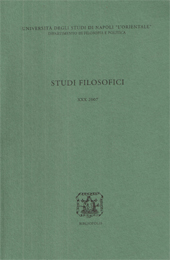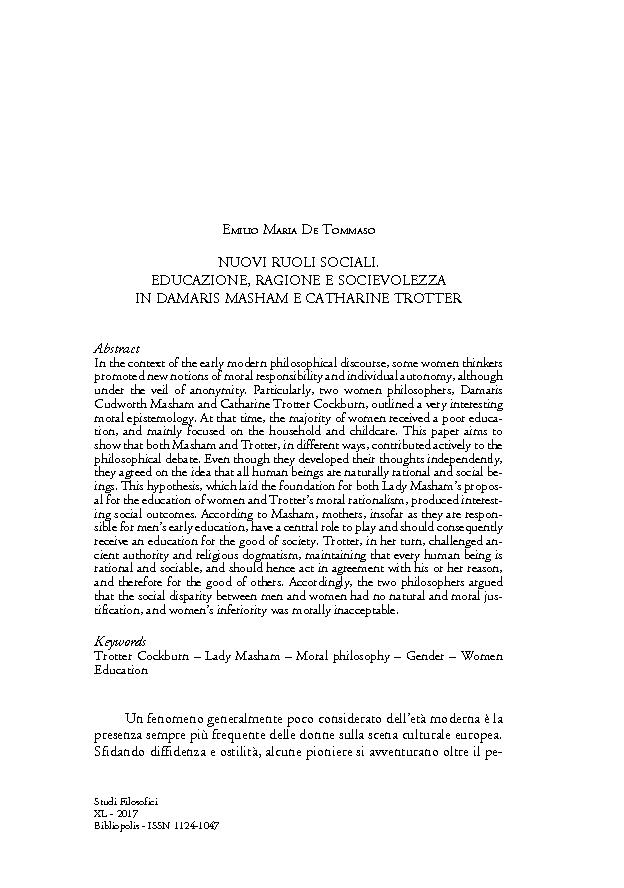Nuovi ruoli sociali. Educazione, ragione e socievolezza in Damaris Masham e Catharine Trotter
P. 97-116
In the context of the early modern philosophical discourse, some women thinkers promoted new notions of moral responsibility and individual autonomy, although under the veil of anonymity. Particularly, two women philosophers, Damaris Cudworth Masham and Catharine Trotter Cockburn, outlined a very interesting moral epistemology. At that time, the majority of women received a poor education, and mainly focused on the household and childcare. This paper aims to show that both Masham and Trotter, in different ways, contributed actively to the philosophical debate. Even though they developed their thoughts independently, they agreed on the idea that all human beings are naturally rational and social beings. This hypothesis, which laid the foundation for both Lady Masham's proposal for the education of women and Trotter's moral rationalism, produced interesting social outcomes.
According to Masham, mothers, insofar as they are responsible for men's early education, have a central role to play and should consequently receive an education for the good of society. Trotter, in her turn, challenged ancient authority and religious dogmatism, maintaining that every human being is rational and sociable, and should hence act in agreement with his or her reason, and therefore for the good of others. Accordingly, the two philosophers argued that the social disparity between men and women had no natural and moral justification, and women's inferiority was morally inacceptable.[Publisher's text]
-
Artikel aus derselben Ausgabe (einzeln erhältlich)
-
Informationen
DOI: 10.1400/257845
ISSN: 2038-6613



